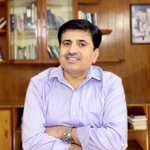Has your child been diagnosed with Autism or Autism Spectrum Disorder (ASD) or Aspergers?
Are you looking for a Natural Cure for Autism or Alternative Treatment for Autism?
If your answers are ‘yes’, read this most exhaustive guide on Autism Spectrum Disorder, its causes, symptoms and homeopathy treatment options.
What is Autism?
Autism is a disorder in which children have impaired or poor communication and social skills. It usually becomes apparent within first three years of life but some mild cases get diagnosed during early schooling. Autism is a disorder of neural development characterized by impaired social interaction and verbal and non-verbal communication, and by restricted or repetitive behaviour. But many parents feel that their kids start showing autistic traits suddenly after a period of normal development.
What is Autism Spectrum Disorder (ASD)?
Index
- What is Autism?
- What is Autism Spectrum Disorder (ASD)?
- Signs and symptoms of Autism
- When should you get your child evaluated for Autism or ASD?
- How prevalent is Autism?
- Why does Autism occur?
- ASD & Vaccine Damage controversy
- Treatment available for ASD, Autism
- Homeopathy Treatment for Autistic Children
- CEASE Therapy for Autism
The autism spectrum disorder describes a range of conditions classified as pervasive developmental. ASD includes autism, Asperger syndrome, pervasive developmental disorder not otherwise specified (PDD-NOS]. These disorders are characterized by social deficits, communication difficulties, stereotyped or repetitive behaviours and interests, and in some cases, cognitive delays.
What are the signs and symptoms of Autism?
Autism (or ASD) is a wide-spectrum disorder and children with autism often vary in the severity and range of signs and symptoms. As well as experiencing varying combinations of symptoms, some people will have mild symptoms while others will have severe ones.
Onset: Overt symptoms gradually begin after the age of six months, become established by age two or three years and tend to continue through adulthood.
Autism is distinguished by a characteristic triad of symptoms: impairments in social interaction; impairments in communication; and restricted interests and repetitive behaviour. Other aspects, such as atypical eating, are also common but are not essential for diagnosis. Here is a detail list of Autism symptoms.
Social Skills – signs and symptoms
- Very little or no eye contact.
- Resistance to being held or touched.
- Tends to get too close when speaking to someone (lack of personal space).
- Responds to social interactions, but does not initiate them.
- Does not generally share observations or experiences with others.
- Difficulty understanding jokes, figures of speech or sarcasm.
- Difficulty reading facial expressions and body language.
- Difficulty understanding the rules of conversation.
- Difficulty understanding group interactions.
- Seems unable to understand another’s feelings.
- Prefers to be alone, aloft.
- Unaware of/disinterested in what is going on around them.
- Talks excessively about one or two topics.
- Minimal acknowledgement of others.
Language Development – signs and symptoms
- Abnormal use of pitch, intonation, rhythm or stress while speaking.
- Speech is abnormally loud or quiet.
- Difficulty whispering.
- Repeats last words or phrases several times. Makes verbal sounds while listening (echolalia).
- Often uses short, incomplete sentences.
- Speech started very early and then stopped for a period of time.
- Difficulty understanding directional terms (front, back, before, after).
Behaviour – signs and symptoms
- Obsessions with objects, ideas or desires.
- Ritualistic or compulsive behaviour patterns (sniffing, licking, watching objects fall, flapping arms, spinning, rocking, humming, tapping, sucking, rubbing clothes).
- Fascination with rotation.
- Play is often repetitive.
- Unusual attachment to objects.
- Perfectionism in certain areas.
- Inability to perceive potentially dangerous situations.
Emotions – signs and symptoms
- Sensitivity or lack of sensitivity to sounds, textures (touch), tastes, smells or light.
- Difficulty with loud or sudden sounds.
- Resists change in the environment (people, places, objects).
- Calmed by external stimulation – soothing sound, brushing, rotating object, constant pressure.
Learning Development – signs and symptoms
- Exceptionally high skills in some areas and very low in others.
- Excellent rote memory in some areas.
- Difficulty with reading comprehension (can quote an answer, but unable to predict, summarize or find symbolism).
- Difficulty with fine motor activities (colouring, printing, scissors, gluing).
- Short attention span for most lessons.
- Resistance or inability to follow directions.
- Difficulty transitioning from one activity to another in school.
Locomotor Skills – signs and symptoms
- Walks on toes.
- Unusual gait.
- Difficulty changing from one floor surface to another (carpet to wood, sidewalk to grass).
- Difficulty moving through a space (bumps into objects or people).
- Gross motor skills are developmentally behind peers (riding a bike, skating, running).
- Fine motor skills are developmentally behind peers (hand writing, tying shoes, scissors).
When should you get your child evaluated for Autism or ASD?
If your child has any of these delays or behaviour, consult your paediatrician asap:
- No babbling by 9 months
- No pointing or gestures by 12 months
- Not responding to their name by 12 months of age
- No single words by 16 months
- Lack of pretend play by 18 months
- No two-word phrases by 24 months
- Any loss of language or social skills at any age
- Your infant or child resists cuddling and doesn’t respond to his or her environment or to other people
- Your child bangs his or her head or demonstrates self-injurious behaviour or aggression on a regular basis
- Your child demonstrates unusually repetitive behaviour, such as repeatedly opening and closing doors or turning a toy car upside down and repeatedly spinning its wheels
